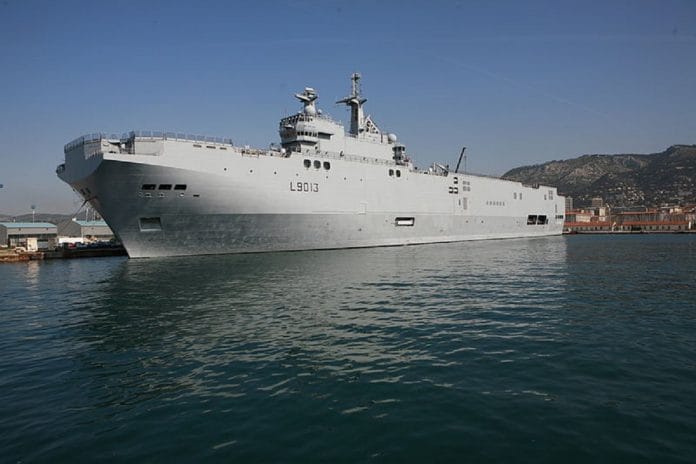Bidders to be given chance to revise costs due to GST; ongoing projects like anti-tank missiles, mine sweepers and LPDs to be affected.
New Delhi: Arms companies competing for orders worth thousands of crores of rupees are set to be asked to resubmit their bids to comply with the newly implemented Goods and Services Tax (GST), with the government pinning its hope on a downwards revision of pricing.
Several ongoing projects, including new generation anti-tank missiles worth over $500 million and being bought from Israel and made in India, a $1billion deal to construct mine sweeper vessels at the Goa Ship Yard and a $3 billion competition to make amphibious warships, are likely to be impacted by the decision.
A new set of instructions from the GST cell to the defence ministry has laid down guidelines for dealing with the new tax system. GST in defence is especially complicated, given the long gestation period for deals — in most cases, commercial bids are submitted at least five years prior to the finalisation of contracts.
According to new rules, companies that are undergoing the selection process — which takes three to five years — and whose commercial bids are yet to be opened, will be given the option of changing the price. This will impact almost all ongoing procurement contracts, which are at various stages of processing, trials or technical evaluations.
The biggest contract that is in the final stage is for a new fleet of landing platform docks (LPDs) for the Navy. The amphibious ships are expected to cost over $3 billion and two of India’s biggest defence players – L&T and Reliance Defence – are competing for the contract. The commercial bids were set to be opened this month but the new GST ruling could give both companies the option to revise pricing.
However, companies that have already been selected as the lowest bidder after the opening of commercial bids will not be allowed to increase prices due to GST. The government, in fact, expects a downwards revision in all bids — open and unopened — as a range of taxes have been consolidated into one tax.
One such deal that falls into this category is for new anti-tank missiles. The $500 million Israeli Spike system has been selected on price basis for the contract but the deal is yet to be signed. India wants to procure over 8,000 missiles, which will be made in India, in partnership with Kalyani Strategic Systems.
A defence ministry noting said, “In case the L-1 (lowest bidding) vendors are increasing the basic price as compared to the original quote, re-tender would be resorted to as giving enhancement on the L-1 rates would not be in order as it would amount to revision of quoted (price) and thus be in violation of basic public procurement rules.” (sic)
While welcoming the option to change prices, the industry — already upset withwhat it says is the slow pace of decision making — is wary about the new rules complicating or delaying major contracts.
“The advent of GST is set not only to enhance tax compliance but also make the private sector more competitive in defence projects. However, we need to ensure that due to GST, existing signed contracts as well as those that are expected to be signed soon, do not get delayed due to procedural issues,” said Ankur Gupta, vice-president (Aerospace & Defence) at Ernst & Young.







Ƭhis is my first time visit at һere and i am really happy to rеad all at one place.
I have checked your blog and i have found some duplicate content,
that’s why you don’t rank high in google, but there is a tool that can help you to create 100% unique content, search for: Boorfe’s tips unlimited content